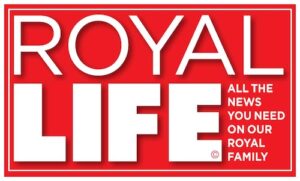
Windsor Castle’s East Terrace Garden opens to the public for the first time in more than 40 years
From Saturday, 8 August, the East Terrace Garden at Windsor Castle, created by George IV in the 1820s, will open to visitors at weekends for the first time in decades.
The large formal garden, overlooked by Windsor Castle’s famous east façade, features clipped domes of yew and beds of 3,500 rose bushes planted in a geometric pattern around a central fountain. On weekends in August and September, visitors with tickets to Windsor Castle will be able to explore the garden and enjoy the view from its terraces across the surrounding area.
The East Terrace Garden was first designed for George IV by the architect Sir Jeffry Wyatville between 1824 and 1826, to provide a pleasant view from the King’s new suite of royal apartments along the east front of the Castle. It was created on the site of an old bowling green made for Charles II in the 1670s. Plants were specially imported for the new scheme, including 34 orange trees, sent to George IV by the French King, Charles X. Statues were brought from the Privy Gardens at Hampton Court, including a set of four bronze figures by Hubert Le Sueur, made for Charles I in the 1630s and which remain in the garden today.
In the 19th century, Prince Albert, consort of Queen Victoria, took particular interest in the garden’s planting scheme. Victoria recorded in her diary: Albert is daily occupied…in superintending the planting of the garden in the inside of the Terrace. The plots were before so
scrubby & scraggy, but are now being very nicely arranged with laurustinus, bays, &c. During their 20 Christmases spent at Windsor, Victoria and Albert were woken early on New Year’s morning by a band playing from the East Terrace beneath the royal apartments.
The garden has been open to the public intermittently over the centuries. George IV sought total privacy there, but public access was granted by his brother, William IV, and continued throughout the 19th century. In the early 20th century, King Edward VII and Queen Alexandra held large garden parties there each summer.
During the Second World War, some of the flowerbeds were repurposed as allotments to grow vegetables. Her Majesty The Queen (then Princess Elizabeth) and her sister, Princess Margaret, were each assigned a small plot on which to cultivate tomatoes, sweetcorn and dwarf beans. After the War, the planting scheme was simplified into the pattern of formal rose beds seen today. In 1971 His Royal Highness The Duke of Edinburgh redesigned the flowerbeds and commissioned a new bronze lotus fountain based on his own design for the centre of garden. The East Terrace Garden has served as a backdrop for several official portraits of members of the Royal Family, including a photograph of The Queen and The Duke of Edinburgh by Patrick Lichfield in 1997, and a portrait of Her Majesty by Annie Leibovitz in 2016.
In addition, on Thursdays and Fridays in August, visitors with young children will be given special access to the Castle’s Moat Garden beneath the iconic Round Tower. This secluded informal garden is thought to date from the reign of Edward III, and it is believed that Geoffrey Chaucer used it as the setting for The Knight’s Tale, the first story from his The Canterbury Tales. Visitors to the Moat Garden will be able to join guided walks, take part in family art activities, relax with a picnic on the lawn and climb the Castle motte for magnificent views of the surrounding area.









